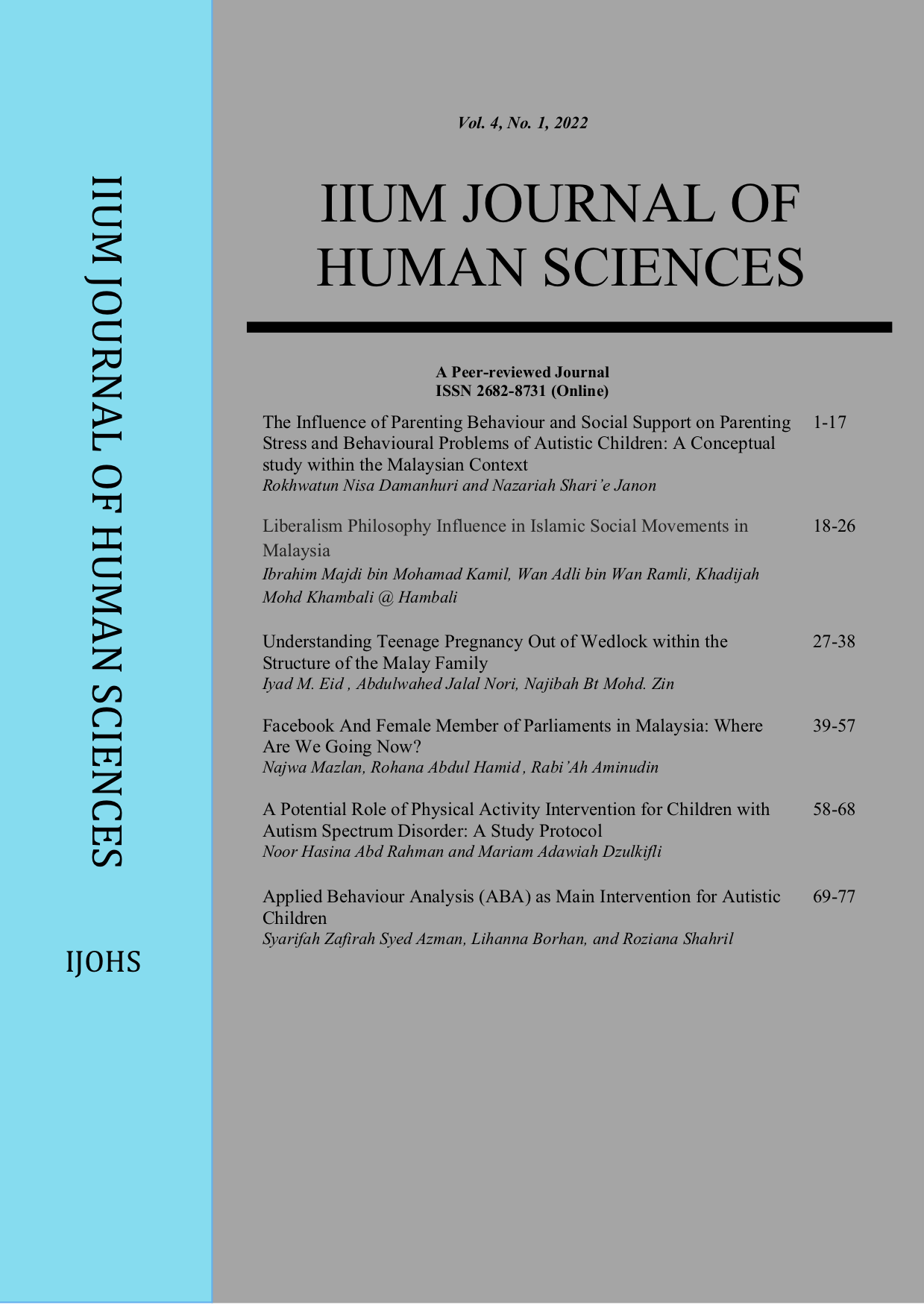A Potential Role of Physical Activity Intervention for Children with Autism Spectrum Disorder: A Study Protocol
DOI:
https://doi.org/10.31436/ijohs.v4i1.231Keywords:
Executive function, motor skills, physical activity intervention, ASD, childrenAbstract
Children with Autism Spectrum Disorder (ASD) commonly have difficulties with executive function abilities and motor skills that might complicate their learning. Literatures have shown on the possible role of physical activity to intervene the effects on the executive functions and motor skills. The present study is proposed to examine the executive functions (EF) and motor skills (MS) of children with ASD, and the possible role of physical activity intervention to affect the EF and MS of children with ASD. The relevant domains of EF which include working memory, planning, inhibition and cognitive flexibility will be examined and compared between children with ASD who receive the physical activity intervention and those who do not. In addition, differences in gross motor skills will be compared between children with ASD who receive the physical activity intervention and those who do not. The data will be collected from children with ASD from the Department of Special Education under Ministry of Education Malaysia and Special Needs NGO centres in Selangor and Klang Valley, Malaysia (N=60). The children with the age range of 6-10 years old, bilingual in English and Malay and able to participate in physical activity or physical education class age range 6-10 years old will be targeted. All participants will be randomly and equally assigned into an experimental and a control group. The pre-intervention scores of executive functions will be obtained for both groups based on the Colour-Word Interference Test, Tower of Hanoi task and Number-Letter Sequencing Test. The scores of gross motor skills will be obtained from the Test of Gross Motor Development (TGMD-2). Then, the children in the experimental group will receive the physical activity intervention which is 15-20 minutes of jogging that will be conducted twice a week for a 12 weeks period. Meanwhile, the children in the control group will be shown an exercise-related video for the same duration. After 12 weeks, the post-intervention scores for the executive functions and motor skills will be recorded again for both groups. Statistical analyses testing the effect of physical activity on EF will be conducted separately by using a 2 (Group: experimental vs control) x2 (time: pre-test vs post- test) mixed ANOVA and testing the effect of physical activity on MS will be conducted by using a 2 (Group: experimental vs control) x2 (time: pre-test vs post- test) mixed ANOVA as well. It is expected that children with ASD who undergo physical activity intervention will demonstrate significant increase in the executive function scores and motor skills scores compared to those who do not undergo the physical activity intervention. The study is expected to add to the current literatures on understanding the potential role of physical activity intervention for children with ASD in improving their executive function and gross motor skills and mechanisms to optimise their learning experience.
Keywords: Executive function, motor skills, physical activity intervention, ASD, children.










